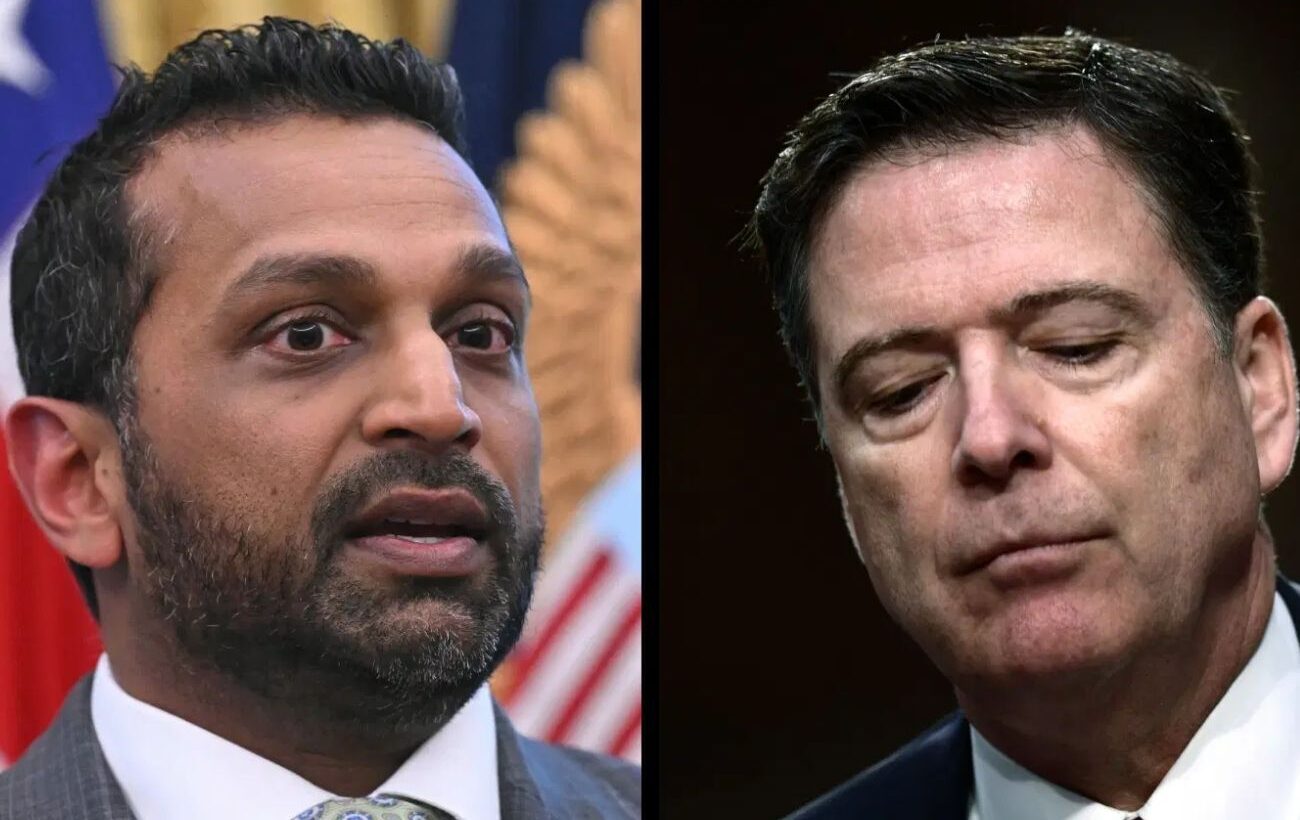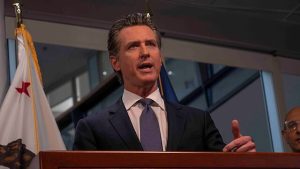The Federal Bureau of Investigation is reportedly weighing what would be an extraordinary move: a highly publicized arrest and “perp walk” of its former director, James Comey. Multiple sources say that at least one FBI agent has already been suspended after refusing to take part in organizing what many view as a politically motivated display.
A Dramatic Turn in a Legal Saga
James Comey was indicted on September 25 on charges of making false statements to Congress and obstructing a congressional proceeding. Though a summons rather than a formal arrest warrant was issued, officials reportedly considered physically arresting him instead of waiting for him to appear voluntarily. His arraignment is scheduled for October 9 in federal court in Alexandria, Virginia.
On the same day the indictment was announced, FBI leadership allegedly debated bringing in Comey through a show-of-force operation. One plan reportedly involved deploying large, physically imposing agents in full tactical gear—Kevlar vests and jackets marked with the FBI logo—to escort him into custody.
A supervisory special agent in the Washington Field Office was chosen to assemble the arrest team but refused to comply, calling the idea “inappropriate and highly unusual” for a white-collar defendant like Comey. That agent was then suspended for insubordination.
According to insiders, the Bureau is now attempting to form another team to carry out the arrest before Comey’s court date. However, several senior supervisors have also declined to participate in what they view as an unnecessary display.
The Charges in Brief
The indictment claims that during a Senate hearing several years ago, Comey falsely testified when he denied authorizing anyone at the FBI to serve as an anonymous source in media leaks tied to investigations of Hillary Clinton. The indictment does not specify who he allegedly authorized or what information was leaked. Comey has publicly denied all wrongdoing.
The legal process leading to the indictment was marked by turmoil within the Justice Department. Erik Siebert, the lead prosecutor in the U.S. Attorney’s Office for the Eastern District of Virginia, resigned just weeks before Comey was charged. Lindsey Halligan, a former personal attorney for Donald Trump, was then appointed to the position and quickly sought a grand jury indictment.
According to several Justice Department sources, staff within the Virginia office circulated a memo arguing that charges against Comey would be inappropriate. Two senior prosecutors in that office were reportedly dismissed soon afterward.
https://twitter.com/CarmineSabia/status/1974793774699340200
A Clash Over “Perp Walks” and DOJ Policy
The concept of staging a dramatic public arrest has sparked intense backlash not only from within the Bureau but also among legal analysts and former prosecutors.
Barb McQuade, a former U.S. Attorney and current legal analyst, criticized the idea, reminding that Department of Justice policy prohibits “perp walks,” in which an arrested individual is paraded before cameras. Her position this time stood in sharp contrast to her earlier comments defending the 2019 pre-dawn arrest of political consultant Roger Stone, where she argued that the show of force was justified to prevent evidence destruction.
Department of Justice policy clearly discourages unnecessary media exposure of suspects in custody unless required for legitimate law enforcement purposes. These policies are binding on agencies like the FBI, which operate under the DOJ umbrella.
In response, FBI Director Kash Patel lashed out publicly, calling McQuade and her network “an ass clown factory of disinformation.” He accused the media of hypocrisy, pointing out that they had previously celebrated similar high-profile arrests. Patel’s remarks added fuel to an already heated public debate.
Yet legal observers note that DOJ policy explicitly limits these practices to prevent political misuse of arrests. “Perp walks” are not meant for publicity or humiliation—they are strictly regulated, requiring valid law enforcement justification. Critics say that ignoring these boundaries could damage the public’s faith in impartial justice.
https://twitter.com/navarroramon780/status/1974477181624705116
The Stakes of a Spectacle
The possibility of staging a televised arrest of a former FBI director carries enormous risks. It would shatter long-standing norms and raise serious questions about whether law enforcement agencies are being used for political theater.
Many critics argue that such a display would serve little legal purpose while inflicting lasting harm on the Bureau’s credibility. They warn that turning a white-collar case into a public spectacle undermines the presumption of innocence and blurs the line between justice and political showmanship.
Within the FBI itself, the apparent refusal of multiple agents to participate highlights a growing internal divide. Some in the Bureau believe that the institution’s reputation would suffer irreparable harm if it were to engage in what looks like a politically charged stunt.
Others, however, reportedly believe that a forceful, visible arrest would demonstrate that no one—not even a former director—is above the law. They argue that accountability should not be softened by a suspect’s former position or public stature.
Still, the optics of a “showy” arrest are problematic. The FBI has traditionally emphasized professionalism and discretion in handling white-collar or political cases. A public takedown of a figure like Comey would contradict decades of law enforcement practice designed to avoid even the appearance of bias or grandstanding.
The larger concern is precedent. If such an arrest were to take place, it could set a troubling example that future administrations might exploit. Once the line between enforcement and spectacle is blurred, it becomes difficult to restore the public’s trust that justice operates independently of political influence.
Internal Tensions and Political Undercurrents
Inside the Justice Department, the case against Comey has already deepened existing divisions. Some prosecutors reportedly viewed the charges as the product of political pressure rather than sound legal judgment. The timing of resignations and firings within the Eastern District of Virginia suggests significant internal disagreement over how to proceed.
For President Trump and his allies, the indictment represents a long-awaited victory in their ongoing feud with Comey, who played a central role in the 2016 and 2017 investigations that defined Trump’s presidency. For Comey’s supporters, however, the case looks like an act of political retribution meant to punish a former official for his past decisions.
Observers note that the controversy could have far-reaching effects on how federal law enforcement is perceived by the public. Each side now frames the situation as a test of institutional integrity: one claims it shows accountability; the other sees it as evidence of politicization.
A Moment of Reckoning
Whether or not the FBI proceeds with a public arrest, this episode exposes a deep crisis within America’s top law enforcement agency. The Bureau, once regarded as a model of professionalism, is now mired in questions about its independence, internal culture, and adherence to legal norms.
For many career agents, the decision about how to handle Comey’s arrest is not just about one man—it’s about the Bureau’s future. If the agency succumbs to political spectacle, it risks losing what remains of its credibility. If it resists and insists on professional restraint, it may face political backlash but preserve its integrity.
As the date of Comey’s court appearance approaches, the public will be watching closely. How the FBI and Justice Department navigate this delicate situation could set the tone for years to come. The outcome will determine whether America’s institutions are strong enough to withstand political pressure—or whether spectacle has replaced justice as the nation’s guiding principle.

James Jenkins is a celebrated Pulitzer Prize-winning author whose work has reshaped the way readers think about social justice and human rights in America. Raised in Atlanta, Georgia, James grew up in a community that instilled in him both resilience and a strong sense of responsibility toward others. After studying political science and creative writing at Howard University, he worked as a journalist covering civil rights issues before dedicating himself fully to fiction. His novels are known for their sharp, empathetic portraits of marginalized communities and for weaving personal stories with broader political realities. Jenkins’s breakout novel, Shadows of Freedom, won national acclaim for its unflinching look at systemic inequality, while his more recent works explore themes of identity, resilience, and the fight for dignity in the face of oppression. Beyond his novels, James is an active public speaker, lecturing at universities and participating in nonprofit initiatives that support literacy and community empowerment. He believes that storytelling is a way to preserve history and inspire change. When not writing, James enjoys jazz music, mentoring young writers, and traveling with his family to explore cultures and stories around the world.









